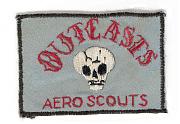GEN David H. Petraeus - Beyond the Cloister
I wonder if the unnamed professor at Princeton was Michael Walzer."The most powerful tool any soldier carries is not his weapon but his mind. These days, and for the days ahead as far as we can see, what soldiers at all ranks know is liable to be at least as important to their success as what they can physically do. Some key questions before the U.S. military in changing times therefore must be: How do we define the best military education for the U.S. armed forces, and what are the best ways to impart that education? What should be the ideal relationship between soldiering and the schoolhouse?"







 Your comments and insights will be value added.
Your comments and insights will be value added.






Bookmarks